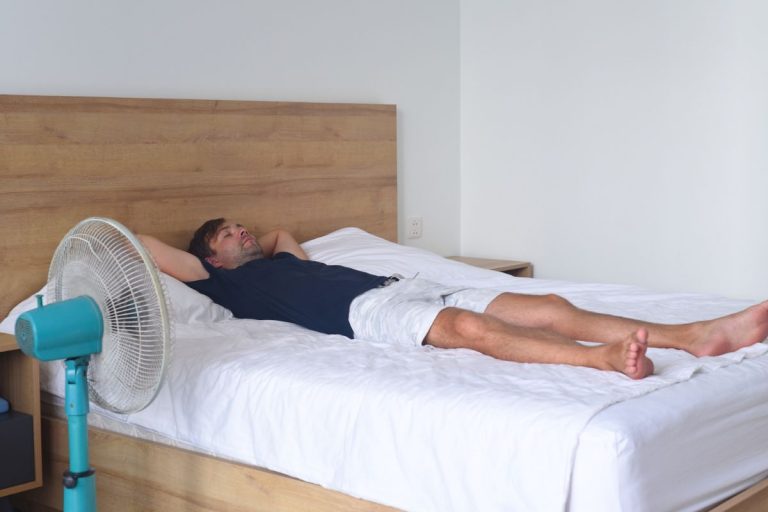Being a nurse requires a lot of work and time spent with patients. Nurses are the first and last person patients see when they’re in the hospital or at a clinic. So, a nurse’s appearance can play an essential role in the way the patient feels about and perceives the nurse and the overall medical staff. That is why nurses with visible tattoos used to have a lot of issues with employment and treatment at work.
Luckily, in the past few years things started changing and the medical community, alongside patients, are becoming more welcoming of untraditional nurses and medical staff. Studies have even shown that the majority of patients don’t even notice that their doctor or nurse have visible tattoos or piercings.
So, can you be a nurse with a tattoo? Theoretically, yes, you can. But in practice, things may differ from one hospital to the other, or even one country to the other. So, to give you a more informed answer to this topic, in the following paragraphs we’ll take a look at what it means to be a nurse and have a tattoo, and whether that is allowed (and where). So, without further ado, let’s get started!
Nurse and Tattoos: Everything You Need To Know
1. Hospital Policy
Because there are no specific regulations regarding nurses and medical staff having visible tattoos, we had to turn to hospital policy and regulations for more information.
In the U.S., the hospital policy determines whether or not nurses and doctors are allowed to have visible tattoos or piercings. The same policy applies to nursing homes, health care facilities, clinics, and in some cases even medical schools. In some places, the policy and regulations are more strict than in others.
For example, some hospital policies require the nurses, if they do have visible tattoos, to cover them completely during work. While other regulations may determine the places and body locations where nurses are NOT allowed to have visible body art or body piercings.
The hospital policy differs in every facility, hospital, or clinic, so nurses need to consult with the hospital regulations regarding body art and body piercings. Overall, nurses can expect to deal with some issues if they do have tattoos in visible places like the hand, the neck, or the face.
2. Tattoos and Patients’ Perception
Patients react differently to the idea of a tattooed or non-tattooed nurse. The nurses’ image has always been one of the most important factors in nursing practice. That is why, traditionally, nurses are expected to look a certain way in order to gain patient’s trust and promote the familiarity of nursing to the patient. Patients are believed to be more likely to trust a traditional-appearing nurse, that wears a white or blue uniform for example, rather than the one with unusual hair color, visible neck tattoos, and piercings on the face.
However, that doesn’t have to be the case in every situation. Some studies have compared the patient’s perception of doctors and health care staff with and without visible tattoos and piercings. The results of the studies usually indicate that the patients are more focused on the care they’re receiving, rather than the appearance of the person providing the care.
Nevertheless, the idea of looking presentable and impeccable lies in the principles of doctors and nurses having to maintain a professional image at work, no matter what. But, as times are changing, and studies are showing how patients actually react to tattoos and piercings in health care providers, so are the hospital and employment policies getting less strict and more tattoo or piercing friendly.
3. Cases When Tattoos And Piercings Are Not Acceptable
So, even though some hospital policies are becoming less strict, this doesn’t mean that nurses can ‘go crazy’ and get dozens of visible tattoos and piercings. In cases of medical staff and tattoos, if allowed, it is essential to be moderate. So, here are some cases when nurses are not allowed to have, get, or show their tattoos;
- If the tattoo may be offensive – getting or having a visible tattoo is okay so long it is not possibly offensive to patients and medical colleagues. Nurses should no get or show tattoos if they depict nudity, offensive political or historical symbols, gang affiliation, criminal affiliation or offense, etc. This would be completely unprofessional and inappropriate, especially in front of the patients. In case a nurse already has such a tattoo, it would be best to cover it or conceal it during work hours.
- If the tattoo is large and visible – if a nurse has a small and delicate tattoo somewhere visible, in most cases that won’t be a problem. However, if a nurse has a large and incredibly visible tattoo, then they might face some issues at work. For example, if a nurse has a sleeve tattoo, covering the entire arm, shoulder, and neck area, that probably wouldn’t be acceptable, and the nurse would have to find a way to cover and conceal the tattoo during work hours.
4. Choosing The Right Tattoo as a Nurse
If you’re a nurse and you want to get a tattoo, make sure to consult the hospital and employer policy at the place where you work. If your employer is fine with you getting a tattoo and has no specific, unusual requirements, here’s how you can choose the best tattoo;
- Location – to avoid any visibility issues, try to avoid getting a tattoo on the neck, hand, face, and lower arm. Go for a placement that is more hidden or easy to cover up at work. This way you can avoid any potential issues with the employer or hospital regulations regarding body art.
- Design – it is best to avoid getting a tattoo with a possibly offensive design. Tattoos that are potentially offensive or provocative, depicting nudity or negative symbols could cause you a lot of trouble at work. Patients could report you for offending them, for example, and that isn’t something you as a nurse want to deal with. Offensive and provocative tattoos can make it hard for patients (and your employers) to trust you and your ability to do a good job.
- Size – now, taking into consideration the location and the design of the tattoo, you can go for a small, medium, or large design if it’s not going to be placed somewhere visible. A large, visible tattoo can create issues both for you and your employer or patients. Large tattoos are harder to cover or almost impossible to conceal.
Other Countries and Tattoo Policies
When it comes to countries other than the U.S., the stance on nursing tattoos is either the same or completely different. For example, the situation is similar in Australia, where there are no official regulations in regards to nurses and body art or body piercings. However, nurses are often required to cover the visible tattoos during work hours either with clothes or makeup.
When it comes to Canada, nurses can openly have tattoos so long they are not offensive or possibly provocative to patients and colleagues. Some nurses still cover their visible tattoos out of complete respect to patients, but overall, the Canadian system is truly liberal and understands that nurses and doctors are humans just like anyone else and have the right to self-expression.
However, other countries are not so liberal when it comes to nursing tattoos. For example, Japan has some of the most strict anti-tattoos policies. There, tattoos are a clear indication of gang-affiliation or yakuza-affiliation (yakuza stand for organized crime in Japan). Therefore, it is considered disrespectful and borderline scandalous for doctors and nurses to have tattoos in Japan.
The situation is similar in Turkey, Iran, UAE, and other countries where tattoos are generally forbidden in Islam. Having a tattoo cannot be legally penalized, but nurses can lose their jobs if it comes to light that they have tattoos or body piercings. The reasons these countries are so strict lies in the belief that tattoos are a form of self-injury, which is forbidden in Islam.
How To Look Professional Even With A Tattoo?
Even if your hospital or medical facility allows you to have a tattoo while working as a nurse, it is still important to maintain a professional appearance at work. A nurse has to look clean and hygienic while following the appropriate dress code. If you’re asked to cover your tattoos during patient interactions or the working hours, you still need to follow such rules.
So, if you’re wondering how can you maintain a professional appearance as a nurse with tattoos; here’s how;
- Wear clean, solid color scrubs
- Practice good hygiene; make sure your hair is clean, your hands are properly washed and your nails and properly trimmed
- Make sure your hair is secured, especially if you have long hair
- Use light, natural makeup; do not use flashy makeup at work, leave that for a night out
- Do not use strong perfumes at work; some patients might find the smell off-putting or they might even be allergic to perfumes
- If required, cover your tattoos with long-sleeves or high-neck shirts
- If required, remove your facial or visible piercings during work, especially if they can compromise your work and come in the way during certain procedures with patients
- Make sure to look approachable; the patients need to trust you, and your colleagues need to see you as reliable
Everybody has the right to express themselves through tattoos or piercings, but as a nurse, it is important to also maintain a professional, approachable, and friendly appearance. Since you’re working with patients, who are often sick and seek someone who understands them or will help them, nurses especially need to present themselves in the best way possible.
No one is saying that tattoos or piercings speak for you, but they surely serve as a non-verbal form of communication, especially if you don’t take care of your appearance at work.
Final Thoughts
If it were up to the tattoo community, we would allow everyone to wear tattoos. But, that is because we understand why people get tattoos and what they mean to them. Other people, however, may be blinded by the tattoo misconceptions, especially if they see someone like a nurse wearing a tattoo.
Sure, you need to be able to express yourself however you want, and in the majority of facilities nowadays you are allowed to. But, it is still important to maintain a professional appearance and follow a dress code. And, if asked and required, you might sometimes need to cover your beautiful tattoos, unfortunately. Until some specific regulations are made, at least in the U.S., that is how nurses and doctors have to behave.





